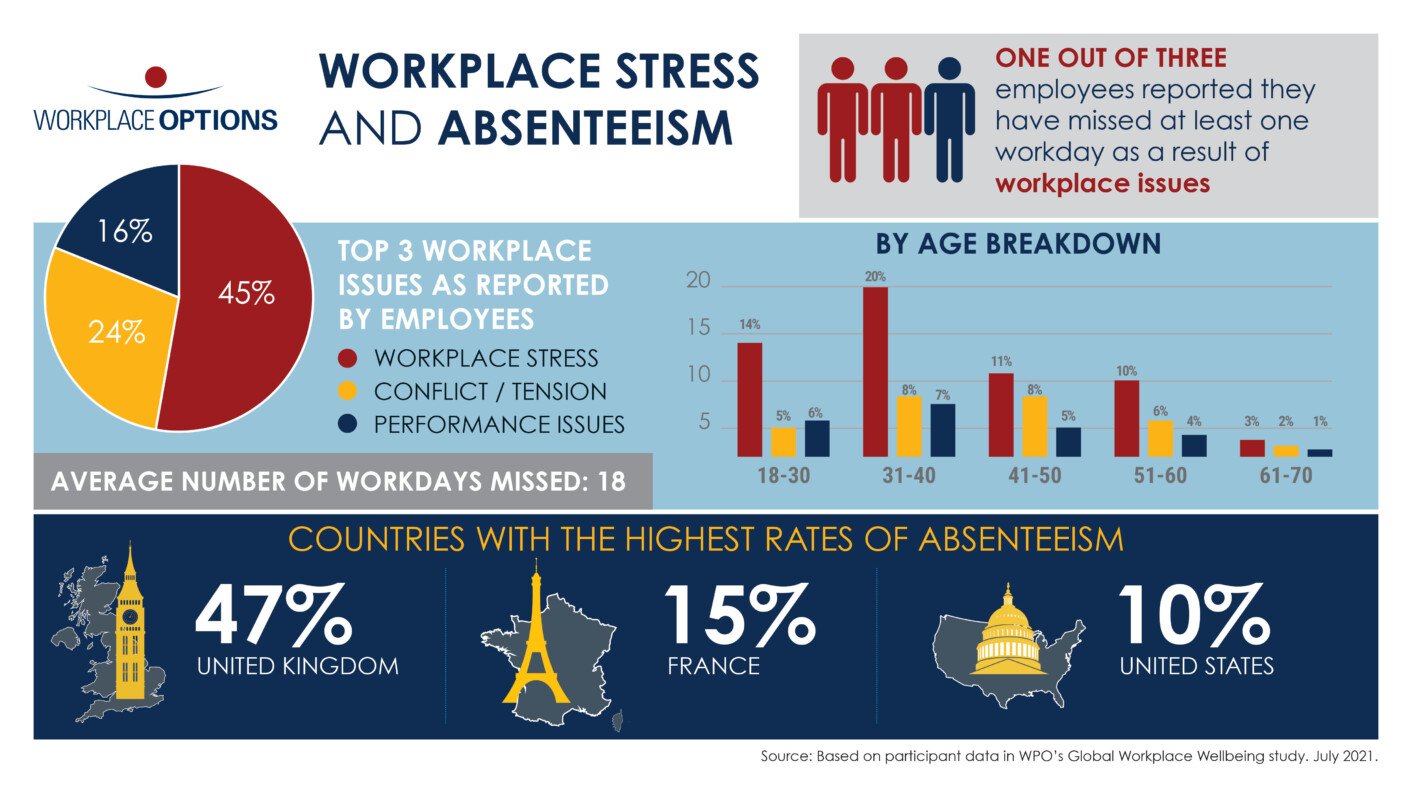Mental health issues exert a profound influence on employee productivity and absenteeism, significantly impacting businesses worldwide. A study published in the National Center for Biotechnology Information (NCBI) reveals that approximately 58% of work-related disabilities stem from mental health conditions, and in the UK, 30-40% of sickness absences are attributed to mental health issues. The World Health Organization (WHO) estimates that depression and anxiety cost the global economy a staggering $1 trillion annually, primarily due to reduced productivity.
1. Comprehensive Impact of Mental Health:
Beyond the financial burden, personal, family, and professional challenges, including marital issues like separation, divorce, and co-parenting, exert a substantial toll on employee mental health and productivity. The NCBI literature review underscores how mental illness adversely affects employment, decreases labor force participation, shortens the duration of employment, and amplifies work absenteeism.
2. Workplace Strategies and Interventions:
Recognizing the severity of these challenges, global companies are increasingly turning to Employee Assistance Programs (EAPs) to bolster employee mental health and well-being. EAPs offer confidential counseling, support, and resources to employees and their families, aiding in the management of personal, family, and work-related challenges. The Society for Human Resource Management (SHRM) reports that 97% of employers provide EAPs, with 84% of users noting improved work performance.

3. CEO Testimonials and Business Outcomes:
CEOs and business leaders attest to the pivotal role of EAPs in supporting employee mental health and well-being, leading to tangible improvements in business outcomes. The endorsement of these programs by top-tier executives reflects a growing understanding of the interconnectedness between employee mental health and overall organizational success.
4. Regulatory Frameworks and Global Perspectives:
To institutionalize mental health support, regulatory frameworks mandating EAPs have been established in various countries. In Australia, the Work Health and Safety Act 2011 mandates employers to create a safe and healthy workplace, incorporating mental health considerations. In the United States, the Affordable Care Act compels health insurance plans to cover mental health and substance abuse treatment, inclusive of EAPs.
5. The African Perspective:
Expanding the lens to Africa, where cultural nuances and societal expectations often shape workplace dynamics differently, mental health challenges persist. Limited awareness and stigma surrounding mental health in many African communities compound the issue. However, progressive steps are being taken. For instance, some multinational corporations operating in Africa are introducing mental health initiatives, recognizing the impact on their workforce's well-being and, by extension, the company's success.
In South Africa, where mental health legislation is evolving, some companies are proactively implementing mental health programs to support their employees. The emphasis is not only on addressing existing challenges but also on fostering a workplace culture that prioritizes mental health awareness and resilience.
6. Conclusion: The Imperative of Mental Health Support in the Global Workplace:
In conclusion, the pervasive impact of mental health on employee productivity necessitates a global perspective and a multifaceted approach. Beyond the financial consequences, the toll on personal well-being demands comprehensive strategies. EAPs have emerged as a potent tool, supported by regulatory frameworks in some nations. CEO testimonials affirm their effectiveness, underlining the symbiotic relationship between employee mental health and organizational success. As the global workforce evolves, addressing mental health issues is not just a choice; it's an imperative for fostering a resilient, productive, and sustainable work environment.



Comments ()